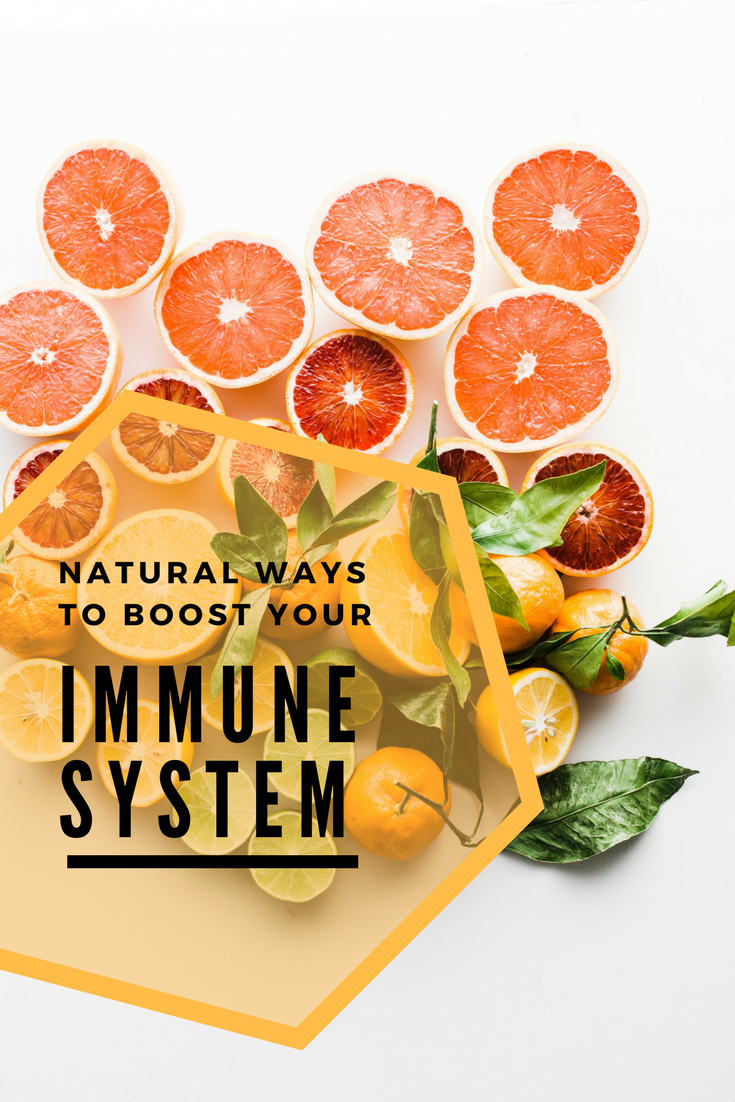
Winter time means more time spent inside to stay warm and cozy, but with it brings more exposure to other people, and more chances of getting sick. It’s important during this time of year to Boost your Immune System!
What can you do to make sure your body can fight off whatever comes its way?
Some of the ways to maintain and boost your immune system are common sense.
• Don’t smoke.
• Eat a diet high in fruits and vegetables.
• Exercise regularly.
• Maintain a healthy weight.
• If you drink alcohol, drink only in moderation.
• Get adequate sleep.
• Take steps to avoid infection, such as washing your hands frequently and cooking meats thoroughly.
• Try to minimize stress.
However, there are a few lesser-known herbs and foods you can use, and add to your diet, to help get you through the cold and flu season.
Echinacea
Echinacea is a genus, or group of herbaceous flowering plants in the daisy family, and is best taken as a preventative measure to avoid getting sick.
A 2012 study published in Evidence-Based Complementary and Alternative Medicine, found that echinacea worked best on recurrent infections, and preventive effects increased when participants used echinacea to prevent the common cold.
Probiotics
Probiotics are essential to maintain a healthy gut, and a healthy gut is essential for overall health. You can get probiotics in capsule form or from drinks like Kefir, or kombucha, or from food, such as yogurt with live bacteria, or from fermented foods such as sauerkraut, or kimchi.
Research published in Critical Reviews in Food Science and Nutrition suggests that probiotic organisms may induce different cytokine responses. It found that supplementation of probiotics in infancy could help prevent immune-mediated diseases in childhood by improving the gut mucosal immune system and increasing the number of immunoglobulin cells and cytokine-producing cells in the intestines.
Elderberry
Elderberry has been used as medicine for thousands of years. Even Hippocrates understood that this plant was important for boosting your immune system. He used elderberry because of its wide array of health benefits, including its ability to fight colds, the flu, allergies, and inflammation. Several studies indicate that elderberry has the power to boost the immune system, especially because it has proven to help treat the symptoms of the common cold and flu.
One study published in the Journal of International Medical Research found that when elderberry was used within the first 48 hours of onset of symptoms, the extract reduced the duration of the flu, with symptoms being relieved on an average of four days earlier.
Ginger
Not only is ginger delicious, but adding it to your tea or dinner can break down the accumulation of toxins in your organs due to its warming effects, and also cleanse the lymphatic system, helping rid the body of toxins, waste, and other unwanted materials.
Research shows that ginger has antimicrobial potential, which helps in treating infectious diseases. It’s also known for its ability to treat inflammatory disorders that are caused by infectious agents such as viruses, bacteria and parasites, as well as physical and chemical agents like heat, acid and cigarette smoke.
Vitamin D
Vitamin D is important for maintaining the immune response, a Vitamin D deficiency was associated with increased autoimmunity as well as an increased susceptibility to infection. Research shows that Vitamin D works to maintain promote immunity. There have been multiple cross-sectional studies that associate lower levels of vitamin D with increased infection.
One study conducted at Massachusetts General Hospital included 19,000 participants and showed that individuals with lower vitamin D levels were more likely to report a recent upper respiratory tract infection than those with sufficient levels.
Ginseng
Ginseng has been used in Chinese medicine for centuries and is known for reducing stress, improving brain function, boosting metabolism, and its anti-inflammatory properties.
A study published in the American Journal of Chinese Medicine found that ginseng extract successfully induced antigen-specific antibody responses when it was administered orally. Antibodies bind to antigens, such as toxins or viruses, and keep them from contacting and harming normal cells of the body. Because of ginseng’s ability to play a role in antibody production, it helps the body to fight invading microorganisms or pathogenic antigens.
Oregano
Oregano essential oil is known for its healing and immune-boosting properties. It is able to fight infections naturally due to its antifungal, antibacterial, antiviral, and anti-parasite compounds.
Several scientific studies found that oregano oil exhibited antibacterial activity against a number of bacterial isolates and species, including B. laterosporus and S. saprophyticus.
Chlorella
Maintaining proper nutrition is one of the most important ways to maintain health. Sometimes it can be challenging to get all of the nutrients that we need from diet alone. Chlorella is full of all of the vitamins and minerals that you need each day, such as B vitamins, iron, calcium, magnesium, and others. Adding Chlorella to your diet every day is a great way to make sure you are getting all of the vitamins and minerals you need to maintain and boost your immune system.

